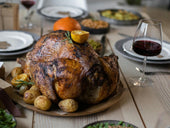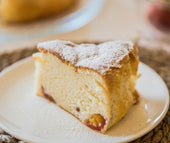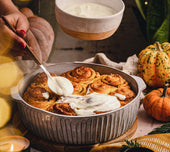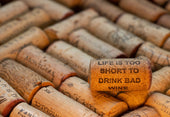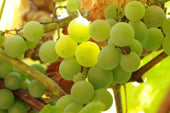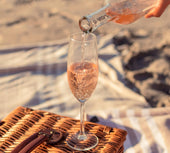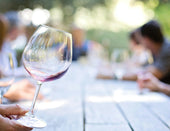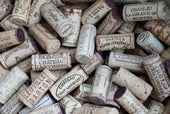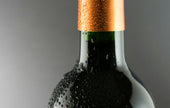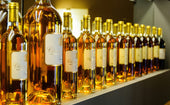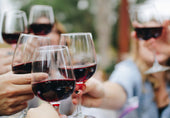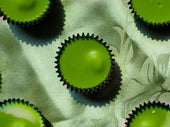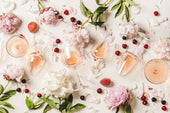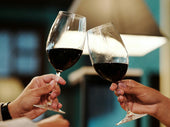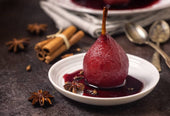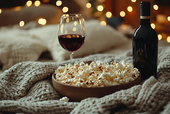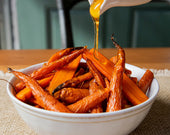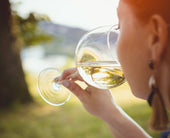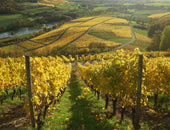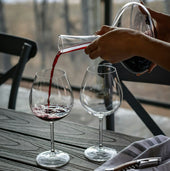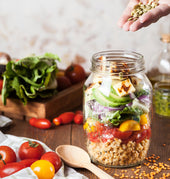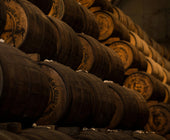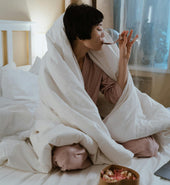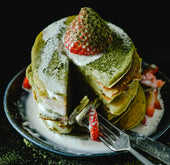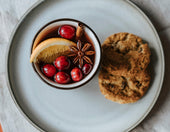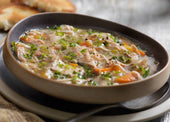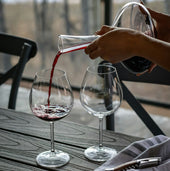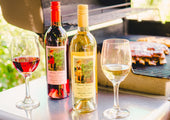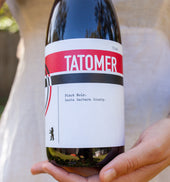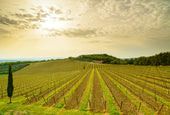
How Should I Store My Wine?

If you're just getting started in your wine collecting journey, or even if you're a long time enthusiast, one of the most important aspects of the wine world is properly storing your wine. Whether you have a handful of bottles, or an entire collection, keeping your wine stored properly is very important. It doesn't matter if you have an entry level everyday drinker, or a First Growth Bordeaux, proper storage will help preserve the quality of your wine for years and years. But what are the best practices when it comes to storing your wine? We'll break it all down below.
Wine Storage Basics
Before we jump into it, it's important to understand the basic principles of wine storage. Wine can be very delicate, and it's perishable. Unlike whiskey or vodka, you can't simply store a bottle of wine in your liquor cabinet, especially if you've already popped the cork on it. Factors such as temperature, humidity, light, and vibration all play a role in determining how well your wine ages and maintains its flavor profile over time.
Temperature Control
One of the most crucial factors when it comes to wine storage is temperature control. Ideally, wine should be stored at a consistent temperature between 45°F and 65°F (7°C and 18°C). Fluctuations in temperature can cause the wine to expand and contract, potentially damaging the cork and allowing air to seep into the bottle, leading to oxidation. Avoid storing wine in areas prone to extreme temperature fluctuations, such as kitchens or garages. Ideally you should should store your wine in a cool, dark, and stable environment instead.
Humidity Levels
Humidity levels also play a big role in wine storage, as they can impact the condition of the cork and prevent them from drying out. The ideal humidity level for wine storage is somewhere between 50% and 70%. Too much humidity can promote mold growth and damage the labels, while too little can cause the corks to dry out and shrink, leading to potential leakage and oxidation.
Light and UV Exposure
Exposure to light, especially ultraviolet (UV) light, can be harmful to wine, causing it to develop off-flavors and aromas. To protect your wine from light damage, store it in a dark environment away from direct sunlight and fluorescent lighting. If storing wine in an area with natural light, try using UV-blocking curtains or blinds to shield the bottles from harmful rays.
Storage Options
When it comes to storing wine at home, there's several options to choose from. Ranging from traditional wine cellars and coolers to simple wine racks and cabinets. The key is to select a storage option that provides adequate temperature and humidity control. If you're serious about aging wine, investing in a temperature-controlled wine cellar or cooler is the best option, this gives you precise temperature and humidity regulation.
There are many wine coolers on the market, ranging in size as well as price. You can find them in stores and online from a few hundred dollars to a few thousand. You might even be able to find one used locally. You could store your wine in your refrigerator, but this should only be done temporarily, no more than a few days to a few weeks at most. If you have a basement that isn't too humid and stays at a constant temperature between 45°F and 65°, that might be a great option as well.
Tips for Aging Wine
If you're planning to age wine in your collection, there are a few additional tips to keep in mind. First, store your wine bottles horizontally to keep the cork moist and prevent it from drying out. Second, avoid storing wine in areas prone to vibrations, such as near appliances or HVAC systems, as vibrations can disturb the sediment and affect the aging process. Finally, regularly monitor your wine collection for any signs of damage or deterioration, such as leaks, mold growth, or off-putting odors, and address any issues promptly to preserve the quality of your wine.
Finally, don't forget to actually drink and enjoy your wine!
Contributed by Ray Ibanez, E-Commerce Manager for Plume Ridge Bottle Shop.

